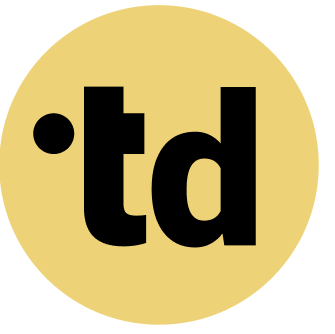Key Takeaways
A role skills audit is a critical tool for mitigating compliance risks, with potential fines in Germany reaching up to €10 million for certain regulatory breaches.
Germany faces a significant skills gap, with a shortage of 700,000 tech-skilled workers and 2.4 million people needing cross-disciplinary retraining.
With 72% of EU companies using AI in HR, skills audits must now include human-AI collaboration to prepare for regulations like the EU AI Act.
Teams are constantly under pressure to adapt, but unclear roles create friction, stalling projects and inviting compliance failures. A shocking 62 percent of employees feel the burden of skills shortages, leading to burnout. The financial sting of non-compliance is even worse, with German companies facing penalties up to €10 million for regulatory breaches. This is where the hero's journey begins for Team Architects. A strategic role skills audit is the essential first step, turning reactive problem-solving into proactive organizational development. It's time to map out what your team has, what it needs, and where you're heading next.
Practical Framework for Team Architects
As a Team Architect, you can apply these principles to your organization:
- Map Current State: Document existing roles and responsibilities using a tool like teamdecoder.
- Identify Gaps: Where are roles unclear? Where do humans and AI agents overlap?
- Define Clear Boundaries: Specify which tasks are handled by humans vs. AI agents.
- Create Accountability: Assign clear decision rights for each role.
- Iterate and Improve: Continuously refine based on team feedback.
What is a Role-Skills Audit?
A role-skills audit is a systematic process to ensure that your team members have the skills required for their roles. This is particularly important when you're building hybrid teams with AI agents, as you need to:
- Identify which skills humans need vs. which tasks AI agents can handle
- Ensure compliance with any regulatory requirements for certain roles
- Plan for skill development and training
- Make informed decisions about role assignments
Why This Matters for Team Architects
As a Team Architect, you're responsible for ensuring the right people (and AI agents) are in the right roles. A role-skills audit helps you operationalize your workforce strategy by creating a clear map of current capabilities vs. required capabilities.
Quantifying the High Cost of Role Ambiguity
Role confusion is not just a minor inconvenience; it carries a steep price. When teams lack clarity, project timelines stretch by an average of 35 percent due to duplicated work and missed handoffs. This ambiguity directly impacts your bottom line, as non-compliance can lead to revenue losses of 15 to some from eroded client trust.
The regulatory landscape in Germany is particularly unforgiving. Failing to comply with the Corporate Sustainability Reporting Directive (CSRD) can trigger fines of up to €10 million or five percent of your annual turnover. Even simple administrative oversights, like those related to the Packaging Act, can cost a company €200,000 per violation.
This financial exposure is why a preventative compliance audit is no longer optional for German companies. The risk extends beyond fines to include exclusion from public projects and severe reputational damage. Tackling this requires a clear map of your team's capabilities and responsibilities, which is precisely what a skills audit provides.
From Chaos to Clarity With a Skills Audit Framework
A role skills audit is the Team Architect's secret weapon against chaos. It systematically maps existing skills against current and future business needs, revealing critical gaps and compliance exposures. More than 50 percent of employees believe skills shortages are the biggest threat to their company's growth. An audit turns this threat into a strategic opportunity for targeted organizational development.
This process isn't about micromanaging; it's about empowering your hybrid team with absolute clarity. Companies that implement clear role definitions see a some reduction in employee quit rates. By defining who does what, you create a foundation for accountability and efficiency. You can try teamdecoder for free to start building this clarity today.
Our Playful Tip: Think of your team's roles like a playlist. An audit ensures you don't have three people trying to be the lead singer while nobody is playing the drums. The goal is a perfect mix where every member's talent shines, creating a chart-topping hit instead of just noise. This clarity is the first step toward better team structures.
Architect Insight: A Five-Step Compliance Testing Audit
For Team Architects ready to conquer the overload, a structured audit is your path to victory. It provides a repeatable toolkit for building resilient teams. This process ensures your roles are not just defined, but also aligned with Germany's strict regulatory standards.
Here is a simple checklist to guide your audit:
- Define Core Functions: Identify every critical business function and the specific regulations that govern it, from data protection to workplace safety.
- Map Existing Roles & Skills: Document current roles and the skills of each team member, including their proficiency with AI agent integration.
- Identify Gaps & Risks: Compare your team's current skills against the requirements for each function, highlighting any compliance or capability gaps. Germany currently has a deficit of 700,000 people with necessary tech skills.
- Develop an Action Plan: Create a targeted plan for training, hiring, or restructuring roles to close identified gaps. Over many companies support language training for new hires to bridge skill divides.
- Integrate and Iterate: Embed the audit into your quarterly planning. Make it a living process, not a one-time report, to keep pace with change management.
Deep Dive: When auditing, consider both hard skills (like software proficiency) and cross-disciplinary skills (like agile working). Germany needs to retrain over a portion of workers in these collaborative methods to stay competitive. A thorough audit addresses both, future-proofing your team's structure.
Beyond the Checklist: Embedding Audits in Your Strategy
A one-time audit offers temporary relief, but continuous assessment drives lasting *Changes*. Integrating your role skills audit into your ongoing strategy transforms it from a task into a powerful tool for transformation. This approach supports the a portion of German firms using agile methods like short-time work to adapt to market shifts.
For modern leaders, this means linking role clarity directly to strategic goals. If your company is pivoting to a new market, a skills audit identifies the capabilities you need to build or acquire. This proactive stance is essential for effective strategy operationalization, ensuring your team structure evolves with your business.
Regular audits also strengthen hybrid team governance by clarifying remote responsibilities. In the EU, a significant number of job seekers now demand remote options, making clear role definitions for hybrid work a necessity. This continuous process ensures your team remains aligned and compliant, no matter where they work from.
The Tangible Wins: Measuring the ROI of Role Clarity
The benefits of a well-executed skills audit are clear and measurable. Organizations with high role clarity report that employees are 3.5 times more likely to be engaged and productive. This directly translates to better business outcomes, as engaged teams are a portion of more profitable. For a mid-sized company, this can mean millions in additional annual revenue.
You also see significant cost savings in talent ma With defined roles and skill paths, onboarding is up to a significant number of faster.t faster. Employee retention improves, as people see clear opportunities for growth within the This is critical in a market where replacing a skilled employee can cost up to the vast majority of their annual salary.l salary.
Finally, the risk mitigation is A continuous role skills audit compliance testing program reduces the likelihood of regulatory fines by over a significant portion. percent. It provides documented proof of due diligence, which is invaluable during any external review. The peace of mind from knowing your team is both effective and compliant is the ultimate return on investment. See our pricing to see how accessible this can be.
Future-Proofing Your Team for Human-AI Collaboration
The next frontier of organizational development is the hybrid human-AI team. Already, many European companies use AI in at least one HR function. A skills audit is essential for managing this transition, ensuring your human team members have the skills to collaborate effectively with their new AI colleagues.
The upcoming EU AI Act classifies most HR-related AI as high-risk, demanding transparency and human oversight. Your audit must now include skills like:
- AI Literacy: Understanding how AI tools make decisions.
- Data Interpretation: The ability to analyze AI-generated reports.
- Ethical Oversight: Ensuring AI use aligns with DEI templates and compliance rules.
- Prompt Engineering: Communicating effectively with generative AI agents.
Auditing for these skills prepares you for the 2026 compliance deadline and unlocks new levels of productivity. By designing roles where humans and AI complement each other, you build a truly modern, resilient, and competitive organization. This is the future of high-performance team structures.
#TeamArchitecture #HybridTeam #OrganizationalDevelopment #Compliance
Try team decoder for free - shape your team and make change feel like play!
More Links
German Federal Employment Agency provides compliance information covering legal and ethical conduct.
Rödl & Partner discusses risk management for SMEs and the legal requirements in Germany.
Nuremberg Chamber of Commerce and Industry offers information on risk management and due diligence obligations in the context of white-collar crime.
DIIR (German Institute for Internal Auditing) provides information about its standards for internal auditing.
International Organization for Standardization (ISO) offers details on the ISO 19600 standard for compliance management systems.
KPMG provides information on their compliance assurance services.
FAQ
How often should my company conduct a skills audit?
For best results, a skills audit should not be a one-time event. We recommend conducting a comprehensive audit annually and refreshing it quarterly as part of your strategic planning cycle to keep pace with market changes and internal transformation.
What is the main benefit of linking a skills audit to compliance?
The main benefit is proactive risk management. By linking skills to compliance, you ensure that your team not only has the right capabilities to perform their jobs but also understands and adheres to legal and regulatory requirements, significantly reducing the risk of costly violations.
Can a skills audit improve employee retention?
Yes, absolutely. A skills audit identifies opportunities for employee development and creates clear career paths. When employees see that their company is investing in their growth, their job satisfaction and loyalty increase, leading to lower turnover.
Is a skills audit only for large enterprises?
Not at all. Startups and SMEs benefit greatly from skills audits. For startups, it helps in scaling roles from day one. For SMEs, it provides the clarity needed for efficient restructuring and ensures the team has the right skills to compete effectively.
How does teamdecoder help with a role skills audit?
teamdecoder provides the tools and templates to streamline the entire audit process. Our platform helps you visualize team structures, map skills, identify gaps, and create clear role definitions, turning a complex task into a simple, repeatable process for any Team Architect.





